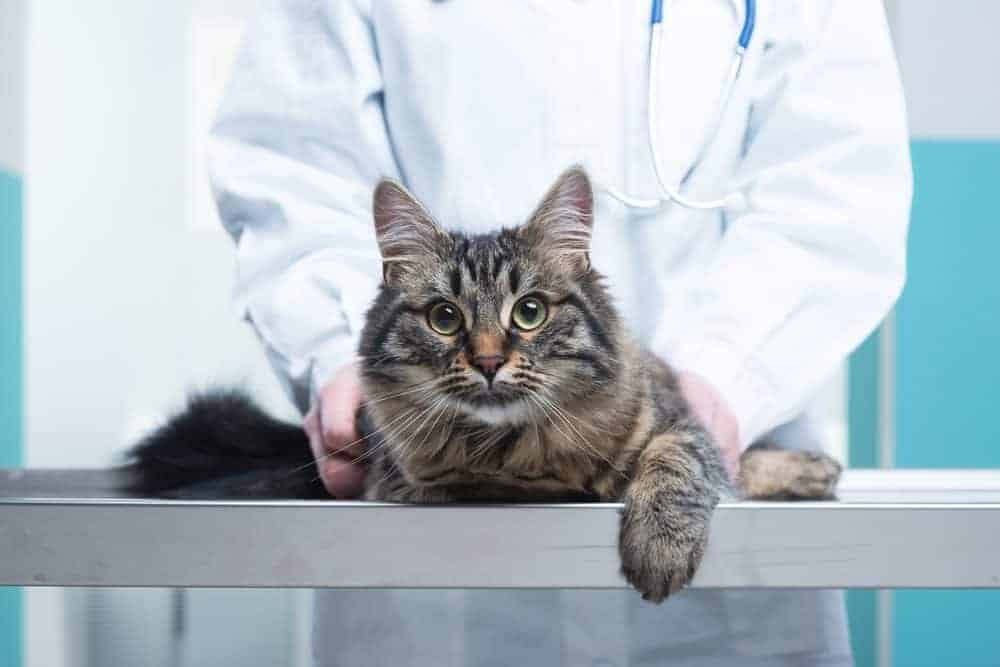
Neutering is a simple operation that will not only stop unwanted pregnancies, but also benefit your cat’s overall health and wellbeing. Feline welfare charities such as Cats Protection and International Cat Care state that getting your cat neutered before they can breed is an essential part of responsible cat ownership. Providing there is no medical reason not to, a good time to neuter your kitten is at four months of age, before they start to become sexually mature – although cats can be neutered at any age.
There are many benefits to neutering, for both female and male cats. When in season, unneutered cats will have much more physical strain put on their bodies than neutered cats, due to the changes in their hormones, increased activity and restlessness.
The challenges for unneutered cats
Unneutered female cats are more likely to suffer from pyometria (an infection in their womb) and cancers of the ovaries, uterus and mammary glands later in life. Unneutered females are more likely to contract serious life-threatening diseases such as feline immunodeficiency virus (FIV), feline AIDS and leukaemia, which can be passed on via the infected saliva of a male cat when he bites her neck during mating.
As well as being more likely to spray to mark territory and attract females, unneutered males are likely to roam further from home, potentially putting them in harm’s way of busy roads and other hazards. They are more likely to fight with other cats, also putting them at greater risk of contracting the same life-threatening diseases as females, as well as increasing their risk of serious physical injury. Unneutered males are also at risk of developing tumours of the testicles.
DID YOU KNOW?
Young cats can have kittens of their own from just four months of age? With their independent lifestyles, accidental pregnancy is a big risk, with one female capable of having up to 18 kittens a year.
What happens during the operation?
Your cat will need to spend a day at the veterinary surgery and will be given a general anaesthetic, so no food should be offered in the hours prior to the operation. The operation for both male and female cats is very simple and usually you will be able to drop your cat off and pick them back up on the same day. Afterwards, a female cat will have a small shaved area on her side or belly – this hair will grow back in a few weeks. She will also have stitches and, if these are not dissolvable, they will be removed by the vet around 10 days later. Cats usually recover very quickly from the operation and your vet will advise on the best care as he or she recovers.
DID YOU KNOW?
And estimated 91% of cats in the UK are neutered, according to the PDSA PAW report 2018. That’s 6.8m cats!
Nutrition after neutering
Neutering has many benefits but it does mean a cat’s needs can change. Your feline friend will require fewer calories, as his or her body has less work to do. It’s a good idea to regularly monitor your cat’s weight and switch to a diet specially created for neutered cats to prevent them from becoming overweight and to help with other changes.
- 48 hours after neutering cats need an estimated 20% fewer calories
- Neutered cats are less likely to roam, but more prone to weight gain
- They’re more likely to have urinary tract infections
- It increases the likelihood of hairballs
To help address these issues, we’ve undertaken detailed nutrition research – along with all-important taste tests – and are delighted to announce the launch of Burgess Neutered Cat. This tasty, advanced, high protein recipe is suitable to feed from the age when a cat is neutered and contains:
- L-carnitine, a naturally occurring amino acid derivative involved in metabolism, for maintaining a healthy weight
- Controlled levels of minerals and cranberry to help support urinary tract health
- Yucca extract for stool formation and reduced odour in the litter tray
- Fibres to help prevent hairballs
At Burgess, we believe this new recipe containing a whole host of beneficial ingredients – including L-carnitine to promote the use of fat stores for energy and to help preserve muscle mass – will help support the health and wellbeing of neutered cats of all ages. The proof is in the eating – so why not try it with your neutered cat?
If you found this interesting, you may also like:
Why the cat’s whiskers can put them off their dinner
Does your cat bat the food out of his bowl before he eats it? The reason could be something known as ‘whisker fatigue’ – a condition that some experts believe causes felines serious stress at feeding time
Cat food in the headlines
Recent newspaper reports have revealed some shocking news about the food that some owners dish out to their pet cats, with some not even realising that felines are carnivores. Our in-house vet Dr Suzanne Moyes explains the specific nutritional needs of felines
Why you should let your cat puzzle it out
Feeding time should be more than just dishing out a bowlful of food. It’s time to let our felines work for their dinner. Here’s why...
Sources: Battersea.org.uk, cats.org.uk














